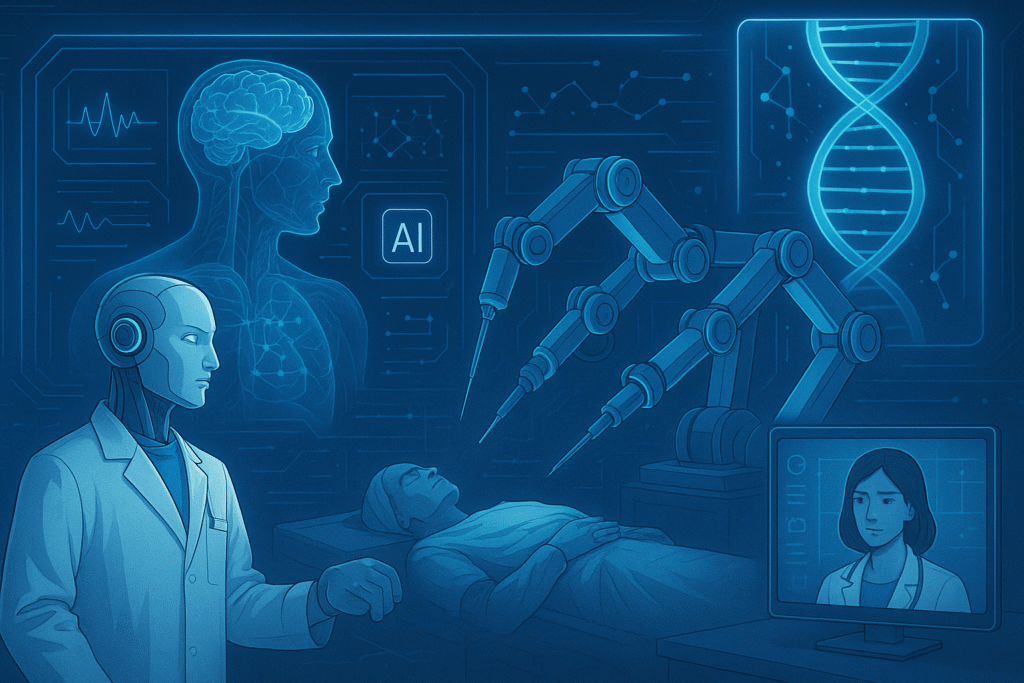Artificial intelligence may not be a classic “gizmo,” but it’s become an undeniable, rapidly evolving force in healthcare. From streamlining clinical workflows to flagging anomalies in imaging, algorithms are working their way into nearly every corner of medicine.
The jury’s still out on just how useful, safe, or transformative these tools will ultimately be. But there’s no shortage of momentum—or headlines. So here’s a curated look at some of the most noteworthy AI-in-medicine developments from the past month.
Predictive Health & Risk Forecasting
- An AI Tool Is Trying to Predict Your Risk of Getting Many Diseases Years in Advance – Here’s How It Works (European research team via UK Biobank)
- AI Body Composition Measurements Can Predict Cardiometabolic Risk (Mass General Brigham)
- Using AI to Predict When Patients Can Safely Stop Using Antidepressants (University of South Australia)
- Machine Learning to Help Identify ‘Hidden Fat’ on Routine Bone Scans (Edith Cowan University)
Brain, Neurology & Mental Health
- AI Tool Detects Tiny Brain Lesions in Children With Epilepsy (Murdoch Children’s Research Institute)
- AI Distinguishes Glioblastoma From Look-Alike Cancers During Surgery (Harvard Medical School)
- Researchers Use AI to Predict the Toll of Concussions on Student Athletes Over Time (University of Michigan)
- Artificial Intelligence Spots Hidden Signs of Depression in Students’ Facial Expressions (Waseda University)
Drug Delivery & Therapeutics
- AI Engineers Nanoparticles for Improved Drug Delivery (Duke University)
Respiratory & Environmental Health
- Researchers Explore How AI Tracks Breathing, Predicts Air Quality (University of Texas at Dallas)
Musculoskeletal & Spine Care
- AI Spine Model Could Transform Lower Back Pain Treatment (Florida Atlantic University & Baptist Health)
Imaging & Reconstruction
- How MSK Doctors Are Using AI To Improve Radiation Treatment (Memorial Sloan Kettering Cancer Center)
- Revolutionary AI Achieves Sharp, Accurate MRI Reconstruction for Cardiac and Blood Flow Imaging (UNIST)
- Machine-Learning Tool Gives Doctors a More Detailed 3D Picture of Fetal Health (MIT, Boston Children’s Hospital, Harvard Medical School)

